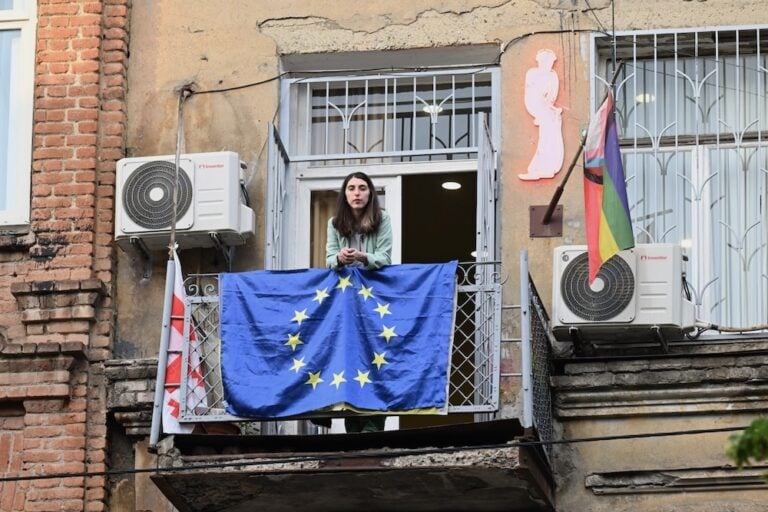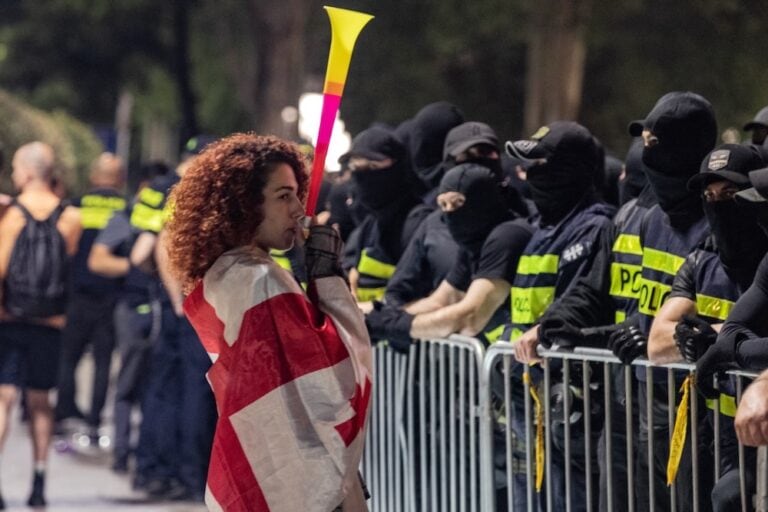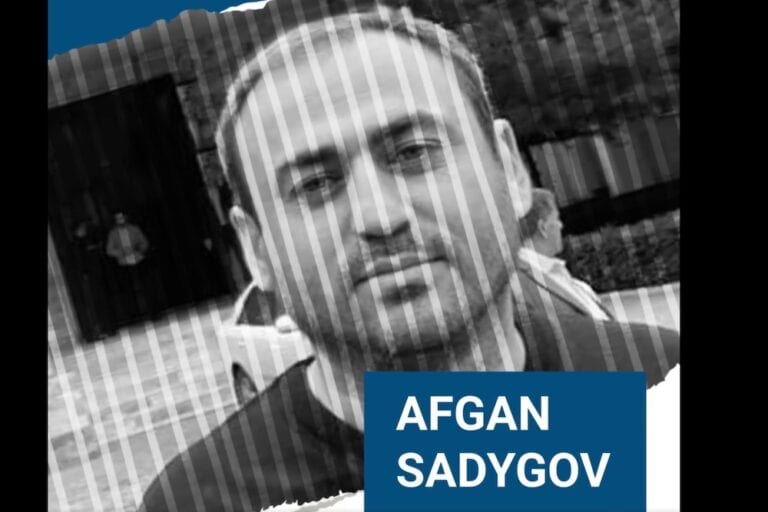(RSF/IFEX) – RSF has voiced concern about a rocket attack on 29 December 2003 that shook the Tbilisi headquarters of the television station Rustavi 2 and damaged the building’s façade but caused no injuries, although 15 journalists were inside at the time. “We fear that this attack was meant to put pressure on the television […]
(RSF/IFEX) – RSF has voiced concern about a rocket attack on 29 December 2003 that shook the Tbilisi headquarters of the television station Rustavi 2 and damaged the building’s façade but caused no injuries, although 15 journalists were inside at the time.
“We fear that this attack was meant to put pressure on the television station that was a mouthpiece for the opposition in the 2 November legislative elections and offered the most extensive coverage of the protests that led to Edvard Shevardnadze’s resignation as president at the end of November,” RSF Secretary-General Robert Ménard said.
Ménard noted that this was the second attack against a television station in Georgia in less than a month. The state television company’s building in Tbilisi was also damaged by an explosive device on the evening of 3 December (see IFEX alert of 5 December 2003).
“It is vital that the press be allowed to work freely as the presidential election on 4 January 2004 approaches. We call on the authorities to guarantee the safety of the news media and journalists who cover the election, no matter what their editorial position is,” Ménard added.
In a press release, Rustavi 2 said the police found an anti-tank rocket-launcher about 200 metres from the television station. The police are reportedly treating the attack as an act of “sabotage.”
Rustavi 2’s transmission has been blocked for several weeks in the Adzhara region, which is an autonomous republic. Adzhara disputes Shevardnadze’s departure and does not accept the legitimacy of Nino Burjanadze, who has been acting as interim president since 23 November.


